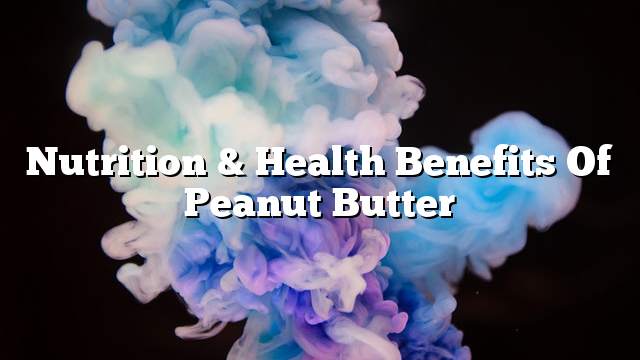Peanut Butter
One of the most popular food items used in preparing many meals is its delicious taste and its various health benefits. Peanut butter, which is cultivated as any plant, is obtained to grow and be harvested and used in several ways, or after several manufacturing processes, in order to obtain a specific product such as peanut butter, which is roasted and cooled to obtain peanuts. Later remove the outer shell, reach the beans that are grinded twice, and add some nutritional additives to become butter ready for consumption.
History of peanut butter
The first recipient of a peanut butter patent was the Kellogg Brothers in 1895, and the first to obtain a patent for peanut butter valid for the year from the date of its production from the products company Krema (1907).
Benefits of peanut butter
- Help reduce the risk of heart disease and diabetes.
- Some studies have found that eating peanut butter may reduce the risk of cardiovascular disease.
- Reduce the risk of colon cancer, especially in women.
- Its potassium content helps reduce the risk of high blood pressure, stroke and heart disease.
- Contains important fiber for digestion, including intestinal health.
- Contains magnesium is important for healthy bones and muscles.
- Helps to suppress the feeling of hunger, and thus this will help to lose weight.
- Peanut butter content of niacin may help protect against Alzheimer’s disease.
- Prevent the formation of stones in the gallbladder.
Food content of peanut butter
- Peanut butter contains about 3 milligrams of vitamin E, about 49 milligrams of magnesium important for bone building, 208 milligrams of potassium, and 0.17 milligrams of vitamin B6, which is important in strengthening the immune system.
- A spoonful of peanut butter contains between 40 milligrams and 250 milligrams of sodium.
- Two tablespoons of peanut butter contain about 7 grams of protein and 16 grams of fat.
Information to pay attention to when buying and consuming peanut butter:
- Attention should be paid to the purchase of peanut butter, some of which contain some synthetic additives harmful to health, added to improve the taste.
- The content of peanut butter from sugar may be harmful, as one large spoon contains about 250 milligrams of it.
